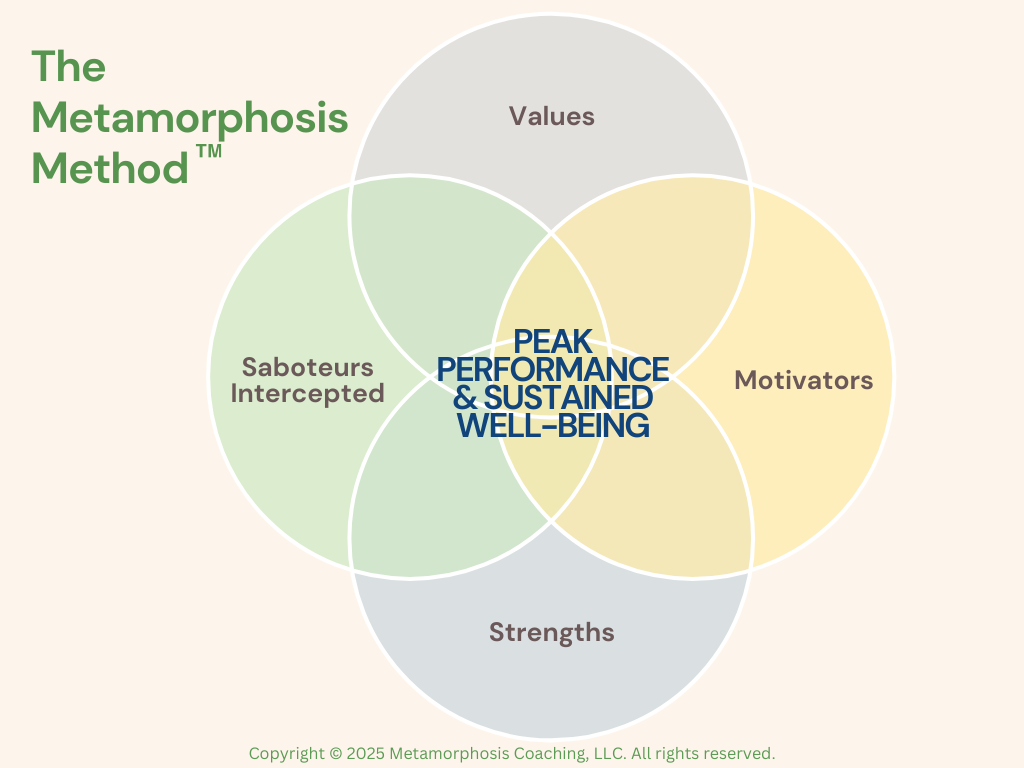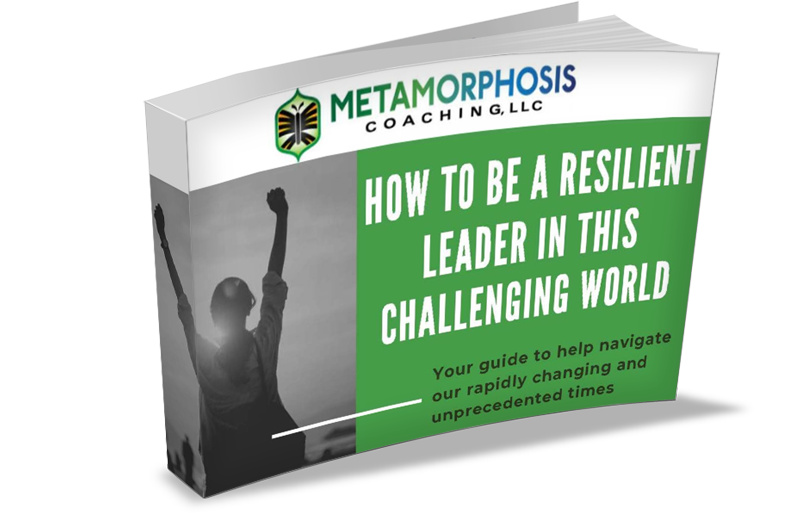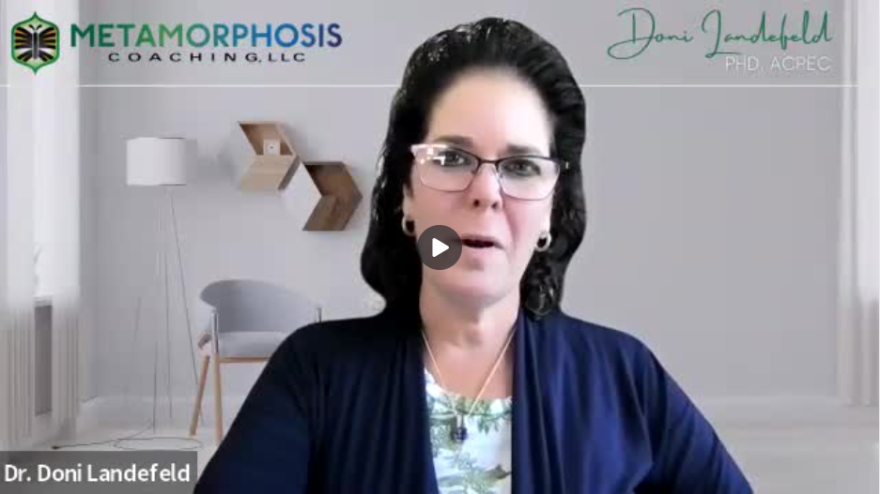The Science of Strengths: 4 Evidence-Based Strategies to Elevate Performance and Well-Being

The Science of Strengths: 4 Evidence-Based Strategies to Elevate Performance and Well-Being
by Doni Landefeld, Ph.D, ACPEC
When it comes to maximizing performance and living with greater clarity and purpose, few ideas are more powerful—or more overlooked—than the concept of leveraging your strengths. This month we continue unpacking ‘The Metamorphosis Method™’ and dive into the science of strengths. Donald O. Clifton, known as the father of strengths-based psychology, spent his career studying what makes people thrive. His central question turned traditional psychology on its head: What would happen if we focused on what is right with people, instead of fixating on what’s wrong?
“The acid test of a strength? The ability is a strength only if you can fathom yourself doing it repeatedly, happily, and successfully.” – Donald Clifton
The result of that question sparked a global movement. Clifton’s research, detailed in the book Now, Discover Your Strengths, redefined how we think about human potential. According to Clifton, “The acid test of a strength is the ability to do it repeatedly, happily, and successfully.” In other words, strengths aren’t just skills or capabilities—they’re activities and patterns of behavior that energize you and allow you to consistently perform at your best.
The Case for a Strengths-Based Life
It’s tempting to spend our energy trying to fix our weaknesses, especially in a culture that prioritizes well-roundedness. But that approach often leads to burnout, frustration, and average performance at best. Clifton’s research, developed further by Gallup, reveals that individuals who focus on their strengths are six times more likely to be engaged in their work and three times more likely to report having an excellent quality of life. They’re also more confident, more resilient during stress, and more productive overall.
On an organizational level, teams that operate from a strengths-based foundation experience better collaboration, lower turnover, and increased innovation. In short: when people do what they’re naturally good at and love doing, everyone wins.
So how do you start putting this into practice? Here are four actionable ways to discover, develop, and leverage your strengths for greater performance and well-being:
1. Discover Your Strengths
The journey begins with awareness. If you don’t know what your strengths are, you can’t use them. We love using assessments! The CliftonStrengths assessment (formerly StrengthsFinder) is one of the most widely used tools to identify your top talent themes. These themes represent recurring patterns of thought, feeling, and behavior that can be productively applied.
For example, someone with a strength in “Strategic” naturally sees pathways and possibilities where others might see obstacles. Someone high in “Empathy” intuitively senses the feelings of others and builds trust through connection. These aren’t just personality traits—they’re innate talents that, when cultivated, lead to exceptional performance.
2. Integrate Strengths Into Your Daily Work
Once you know your strengths, the next step is finding ways to align them with your daily responsibilities. This doesn’t always require a big career change—it could be as simple as adjusting how you approach certain tasks.
If you lead with “Achiever,” start your day with a clear list of tasks to check off for a sense of momentum. If “Input” is one of your strengths, seek out opportunities to gather and organize information to benefit your team. By playing to your natural talents, you reduce friction, increase motivation, and get more done—with less stress.
This concept applies to teams as well. When roles and projects are aligned with individual strengths, collaboration becomes more effective and outcomes improve. Teams flourish when each member gets to do what they do best, every day.
3. Talk About Strengths With Others
Building a strengths-based culture begins with intentional conversation. Whether you’re a manager, mentor, or team member, asking questions like, “What energizes you most in your work?” or “When do you feel you’re at your best?”opens the door to more meaningful dialogue.
Clifton emphasized that “strengths develop best in the context of relationships.” When we recognize and affirm each other’s talents, we build trust, increase collaboration, and unlock potential that might otherwise stay hidden. Try sharing your own strengths with colleagues or family members and asking about theirs. You might be surprised by what you discover—and how it improves communication and connection.
4. Invest in Strengths Development
Talent is a great start, but without intentional investment, it remains just that—potential. Clifton highlighted the formula:
Talent × Investment = Strength
Investment means putting in the time to practice, refine, and expand your natural talents. That could look like taking on a project that stretches your abilities, finding a mentor who helps you grow, or retaining a coach to help you strategize and deepen your expertise. The more you actively work with your strengths, the more they grow—and the greater your impact becomes.
Remember – Strengths Are Your Superpower!
Living and working from your strengths isn’t about ignoring your weaknesses. It’s about understanding where your energy and excellence come from—and using that knowledge to fuel growth, performance, and fulfillment. When we spend too much time fixing what we’re not, we risk losing sight of what we are.
Donald Clifton’s strengths-based philosophy is more than a tool—it’s a mindset shift. It invites us to stop asking, “How do I get better at what I’m bad at?” and start asking, “How do I do more of what I do best?”
And when we do that, we don’t just become better performers. We become more authentic, more empowered, and more alive.
Let us help you discover and leverage your strengths. Just click on the button below to get started.
Special Report:
How to be a Resilient Leader in this Challenging World. PLUS More Free Resources!

Sign up below and get your FREE "How to Be a Resilient Leader in This Challenging World" Report today!

